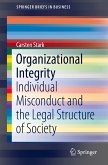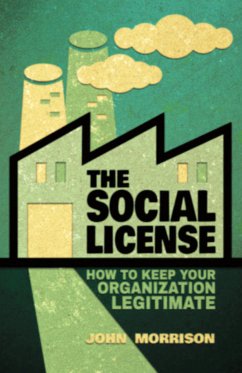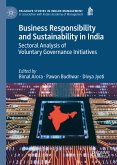This volume explores the value of business integrity and ethics as a "best practice" model in business strategy. The authors define business integrity, explore areas in which integrity is often absent or discredited, and provide a framework and tools to help build better business ethics and corporate social responsibility. The volume aims to reveal that beyond the immediate economic effect, corruption can ruin entire countries by destabilizing key economic and political players, warping their vision for state development.
Against the backdrop of global financial and ethical crises, the authors argue that integrity in business is a key component for long-term success. Integrity includes the ability to be consistent with one's moral values and principles and places society's wishes at the center of business decision-making. The cornerstone upon which a culture of integrity is built within a certain business is the ethics code. It explicitly states the values and principles to which a company adheres. The continuous promotion, support and communication of the ethics code stipulations provide the basis upon which integrity in business is built.
Featuring case studies from countries such as Sweden, Great Britain and France and companies such Starbucks, Nike, PSEG, and Anglo-American PLC, this volume provides a comprehensive study of business integrity and social responsibility that will be of interest to students, scholars, professionals and policy-makers from around the world.
Against the backdrop of global financial and ethical crises, the authors argue that integrity in business is a key component for long-term success. Integrity includes the ability to be consistent with one's moral values and principles and places society's wishes at the center of business decision-making. The cornerstone upon which a culture of integrity is built within a certain business is the ethics code. It explicitly states the values and principles to which a company adheres. The continuous promotion, support and communication of the ethics code stipulations provide the basis upon which integrity in business is built.
Featuring case studies from countries such as Sweden, Great Britain and France and companies such Starbucks, Nike, PSEG, and Anglo-American PLC, this volume provides a comprehensive study of business integrity and social responsibility that will be of interest to students, scholars, professionals and policy-makers from around the world.
Dieser Download kann aus rechtlichen Gründen nur mit Rechnungsadresse in A, B, BG, CY, CZ, D, DK, EW, E, FIN, F, GR, HR, H, IRL, I, LT, L, LR, M, NL, PL, P, R, S, SLO, SK ausgeliefert werden.
Es gelten unsere Allgemeinen Geschäftsbedingungen: www.buecher.de/agb
Impressum
www.buecher.de ist ein Internetauftritt der buecher.de internetstores GmbH
Geschäftsführung: Monica Sawhney | Roland Kölbl | Günter Hilger
Sitz der Gesellschaft: Batheyer Straße 115 - 117, 58099 Hagen
Postanschrift: Bürgermeister-Wegele-Str. 12, 86167 Augsburg
Amtsgericht Hagen HRB 13257
Steuernummer: 321/5800/1497
USt-IdNr: DE450055826
Bitte wählen Sie Ihr Anliegen aus.
Rechnungen
Retourenschein anfordern
Bestellstatus
Storno









